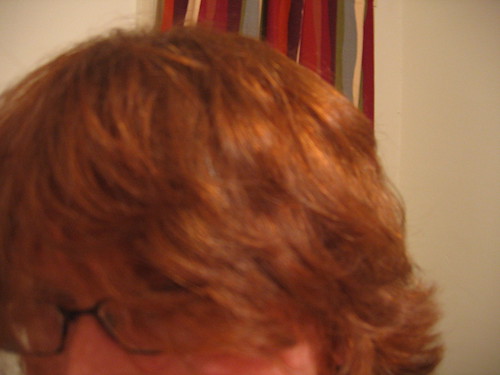My favorite TV show ended this week, an HBO mob-themed drama set in New Jersey. I won't add any superlatives about the show being the greatest dramatic achievement in the history of television, how the show's characters gave viewers a vicarious glimpse into the life of the criminal underworld/angst-ridden upper-middle-class, or how the cable-serial format in its various broadcast and digital forms has become the 21st-century equivalent of the realist novel. Because all of that goes without saying now, don't you think?
No, instead I'll just call
The Sopranos my favorite television show. (It was better, really, when it was just a small obsession a handful of us shared? I guess there's always
The Wire.) And a lot of people are upset with how the show ended. Probably because it ended with a Journey song -- even if it didn't somehow manage to lend "Don't Stop Believin'" a surprising dose of ambiguity.
The musicial reference I thought of, though, wasn't Steve Perry, but the singer who has probably been featured most often (and most prominently) in the history of the show -- Van Morrison. (See "Gloria," "Mystic Eyes," "Glad Tidings," and notably, this season's Morrison cover of "Comfortably Numb.") Chase is clearly a fan. And forgive me, but Chase's build-up-and-cut-off ending takes a page right out of Van the Man's book. But it involves a Van Morrison song that's never (so far as I can remember) been used on the show.
I'll defer to Lester Bangs's
classic account of Morrison's live shows from the early 1970s:
Now we get to see three of four songs from a set by Van Morrison. He climaxes, as he always did in those days, with "Cyprus Avenue" from Astral Weeks. After going through all the verses, he drives the song, the band, and himself to a finish which has since become one of his trademarks and one of the all-time classic rock 'n' roll set-closers. With consumate dynamics that allow him to snap from indescribably eccentric throwaway phrasing to sheer passion in the very next breath he brings the music surging up through crescendo after crescendo, stopping and starting and stopping and starting the song again and again, imposing long maniacal silences like giant question marks between the stops and starts and ruling the room through sheer tension, building to a shout of "It's too late to stop now!," and just when you think it's all going to surge over the top, he cuts it off stone cold dead, the hollow of a murdered explosion, throws the microphone down and stalks off the stage. It is truly one of the most perverse things I have ever seen a performer do in my life. And, of course, it's sensational: our guts are knotted up, we're crazed and clawing for more, but we damn well know we've seen and felt something.
Instead of Morrison's "It's too late to stop now!" the episode closes midline with "Don't stop...!" Would the other line have been too on the nose? Or would it have been too implausible that the jukebox would have carried a Van Morrison live album?
Or, like a thousand other Sopranos fans, am I digging just a foot too deep?
